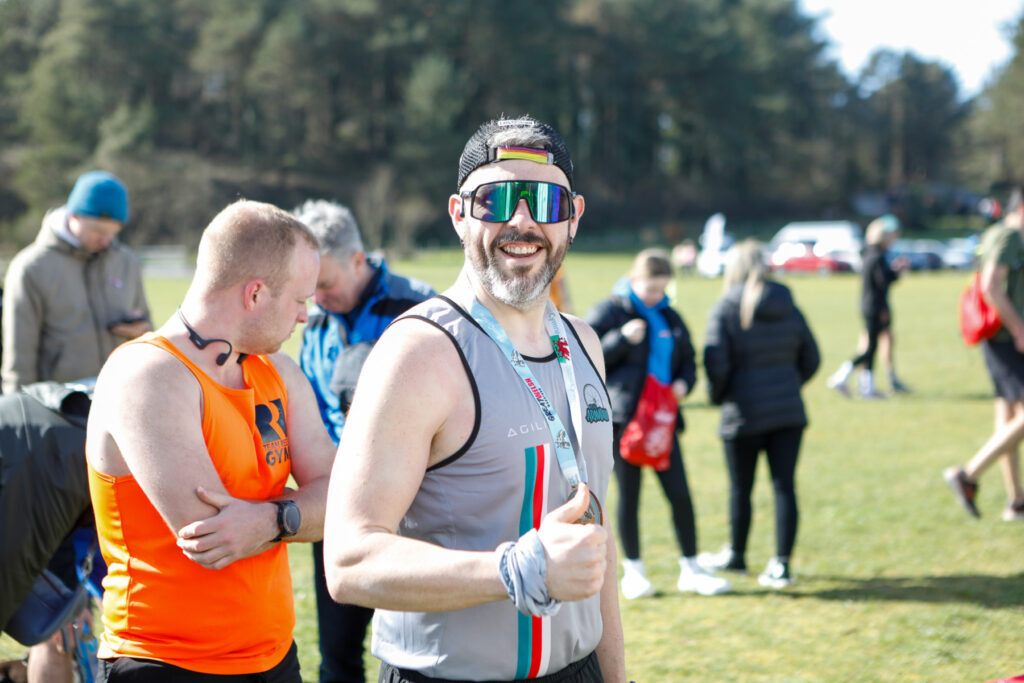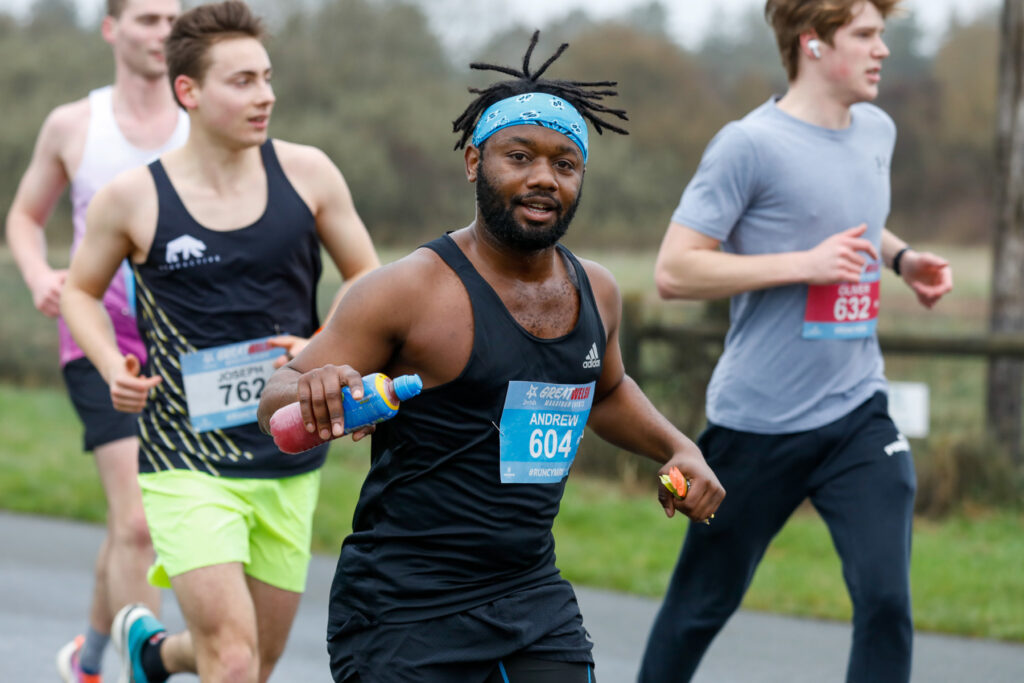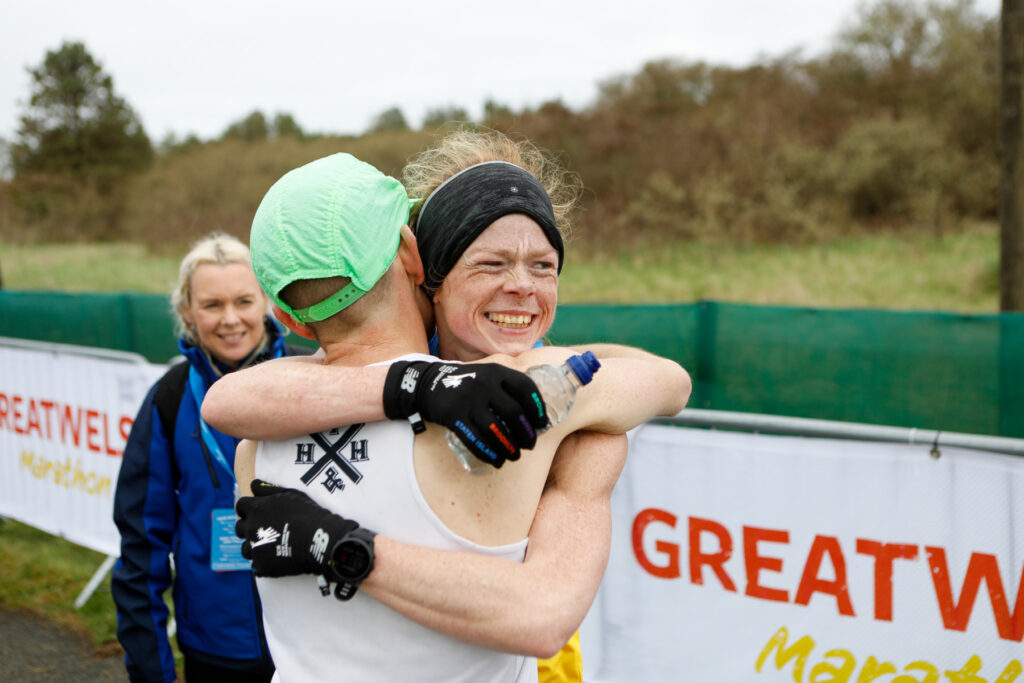If you’re considering running a marathon, congratulations on taking the first step toward an incredible achievement! Whether you’re a seasoned runner or a complete beginner, training for a marathon can feel both exciting and daunting. But with the right approach, commitment, and some tips to guide you, you’ll be ready to take on the challenge. Here’s some tips on your route to success:
1. Set Your Goals
Before you dive into training, it’s essential to set a realistic goal. For your first marathon, the goal might simply be to finish and for others it might be finishing in under 4 or 5 hours. Your goal will shape your training plan, so take some time to think about it and be honest with yourself about your current fitness ability. Once you’ve answered the questions below, you’ll be able to work out a plan for success.
Ask yourself:
- How much running experience do I have?
- How much time can I realistically dedicate to training each week?
- Am I aiming for a specific time or just to finish?

2. Start with a Base
If you’re new to running or have been inactive for a while, the first step is to build a solid foundation. It’s important to get your body accustomed to consistent movement before tackling longer distances. Start by establishing a routine of running 3-4 times per week at an easy pace. If you struggle with motivation, ask a friend to join you, or have a look for any social running groups in your area. Having company and someone else to make a commitment to run with will definitely incentivise you to get out and run!
When starting out, aim for shorter distances, such as 5K or 3 miles per run, and gradually increase as your endurance improves. It’s important to monitor and keep track of your runs so you see how you are progressing and improving over time.
3. Keep To The Plan!
It’s important to stick to your plan, if you miss a run one day it isn’t a big deal but you should aim to at least complete 3-4 runs per week. Being committed and consistent is the recipe for success, so once you’ve established a solid fitness base, the next step is selecting a marathon training plan that aligns with your fitness level and your schedule.
Most marathon training plans span 16 to 20 weeks, combining long runs, speed work, and essential rest days. When choosing a plan, look for one that emphasises gradual progression, with mileage increasing by about 10% each week (depending on your individual fitness level). Check out our training plans HERE.
Rest days are equally important, allowing your body to recover and reducing the risk of injury. Try incorporating cross-training activities like cycling, swimming, or strength training. This balanced approach will set you up for long-term success!
Additionally, tapering in the final weeks is crucial, as it involves reducing mileage to help your body fully recover and prepare for race day.

4. Focus on Nutrition
Nutrition is just as crucial to marathon training as the miles you put in. A well-fueled body not only performs better but also recovers faster. To optimize your nutrition, focus on key elements that you know will help such as carbohydrates (a primary fuel source for long runs), so make sure to include whole grains, fruits, and vegetables in your daily meals. Evidence suggests that protein plays a vital role in muscle repair, so seek out sources of protein such as eggs, dairy, nuts, fish and meats.
Make sure you hydrate well too! Drink water regularly throughout the day and during your runs. For longer runs, consider electrolyte drinks to replenish the minerals you’ve lost through sweat.
5. Remember to listen to Your Body
Injuries are a common part of marathon training, but they can be avoided by listening to your body and taking preventive measures. When something feels off or painful, it’s crucial to rest rather than pushing through the discomfort. Incorporating stretching and foam rolling into your routine helps to prevent stiffness and promotes recovery.
Try mixing it up with strength training that focuses on your legs, core, and upper body—not only does this improve running efficiency but also significantly reduces the risk of injury. By being mindful of these practices, runners can train more safely and effectively.
6. Mental Preparation
Marathon training is not just a physical challenge; it’s also a test of mental strength. As the distances of your long runs increase, moments of doubt and fatigue are inevitable. Building mental toughness is crucial to overcoming these tough spots and pushing through when it gets hard.
One effective strategy is to break down your long runs into segments in your mind. For example, if you start at point A and your 10-mile route includes a sign, building, bench or statue at a particular mile, you’ll know when it’s coming up and those way-points can spur you on.
Another trick is to get your running buddy to do a segment with you – this can make the distance feel less overwhelming and keep you motivated.
Try visualising yourself on race day, picturing yourself crossing the finish line. This can also boost your confidence and motivation. Remember, positive self-talk, particularly during challenging parts of your run, will help keep your mind focussed and determined!

7. The Importance of Rest and Recovery
Rest days are non-negotiable. Your muscles need time to rebuild and repair, especially after long or intense runs. Make sure to schedule at least one or two rest days per week and listen to your body if you feel overly fatigued.
8. Tapering Before Race Day
The final weeks leading up to a marathon are crucial for recovery and preparation, a phase known as the taper. During this time, runners gradually reduce their mileage to allow the body to heal and rest to be fully ready for race day. While tapering may feel odd due to the decrease in running, it’s important to trust the process, as it ensures you arrive at the starting line feeling fresh and energised. Check out our tapering tips HERE.

Final Thoughts…
Training for a marathon is a journey that will test your limits, but it is also incredibly rewarding. By setting realistic goals, following a structured plan, and listening to your body, you will be well on your way to crossing that finish line. And remember, the marathon is just one day—the real victory is in all the miles you will run along the way.
Good luck and enjoy the journey!



